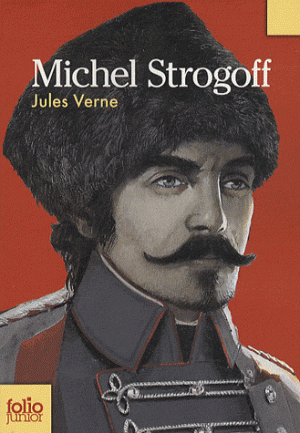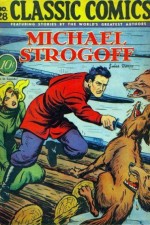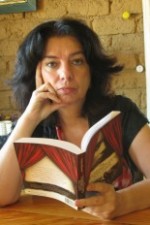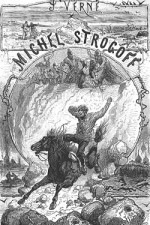Writers Write: My Favourite Book 2
Sophie Masson
This is the second in a series of Guest Posts from some of our finest writers. Today, it’s Sophie Masson. Sophie has had more than 50 novels published in Australia and internationally, mostly for young adults and children, but also for adults, including the internationally-selling ‘Forest of Dreams‘ .
In English-speaking countries, Jules Verne is mainly remembered for his pioneering science-fiction novels: Twenty Thousand Leagues under the Sea, Journey to the Centre of the Earth, From the Earth to the Moon, and of course his ‘science-flavoured’ great romp, Around the World in Eighty Days. But Verne also wrote dozens of adventure stories of a more classic kind, set in all sorts of exotic locales, such as Australia and the Pacific (Captain Grant’s Children, Mistress Branican) Alaska, China, South America … And, in the 1876 novel, which is reckoned in France to be his very best, the biggest country in the world, Russia.
That novel’s simply called, in French (in which language I read it) by the name of its central character, Michel Strogoff (Michael Strogoff, Courier of the Czar, it was titled when translated into English.) And it’s the book that amongst all the many favourites of my voracious childhood reading, I’ve chosen to focus on, because it’s had such a big impact on me over the years and set me off on a life-long fascination with the extraordinary culture of an extraordinary land.
When I first read it, aged about eleven or twelve, I already had a few images of Russia, drawn from fairytales I’d loved, such as the Tale of Prince Ivan, Grey Wolf and the Firebird, Fenist the Falcon, The Frog Princess and so on; drawn, too, from my father’s great interest in Russian music and Russian icons. But Michel Strogoff, with its passionate, vivid characters, marvellous settings, romance, mystery, danger and adventure — and also a welcome touch of humour — simply bowled me over.
Basically, the story is that Michel (or Mikhail, in Russian) Strogoff, a young Siberian-born soldier in the service of Tsar Alexander II, is sent by the monarch to take a vital, urgent message to the Tsar’s brother, who commands the army in Siberia. He has to take the message by hand because a rebel Tartar army under Khan Feofar has cut all telegraph communications with Siberia, prior to taking over towns in the far east. And they’re being helped by a traitor called Ivan Ogareff. They plan to lay siege to the Siberian towns and destroy the Tsar’s rule there, but Ogareff is in disguise and cannot be found, and the army must be warned. So Michel sets off, by road and river, on a mission which becomes increasingly dangerous as his enemies come to hear of his presence. Meanwhile, his mother is looking for her son—and a young woman named Nadia is on her way to rejoin her father in Siberian exile; and soon enough they meet. Then there’s Englishman Harry Blount and Frenchman Alcide Jolivet, rival war correspondents reporting on the upheaval in the empire, who are ready to brave any dangers to get first scoop.
When Michel, his mother and Nadia are captured by the khan’s forces, and something terrible happens, all it seems, is lost … But Michel won’t give up, not for a moment, and neither will the others …
I read the novel I don’t know how many times, swept away by the grandeur of the story, the fantastic adventure, with its wolves, bears, bandits, iced-up rivers, cruel torturers and traitors. I thrilled to the love I could see developing between Nadia and Michel, both equally brave, each in their own way, and I was swept away too by the description of the journey, which starts in Moscow and ends in Siberia — a journey over water, through forest and mountain: you get a real sense of the vastness of Russia, and it was absolutely exhilarating, to me. I guess basically, it’s a chase novel, and it has the breakneck pace of that, and lots of twists and turns, culminating in an especially unexpected and satisfyingly resolved one. But it is also beautifully written, as tight and clever as Around the World in Eighty Days, and much more passionate and exciting. No wonder French critics reckon it’s Verne’s best!
That novel led me directly as a teenager to plunge into actual Russian literature — to Chekhov, Tolstoy,  Dostoevsky, Gogol, Bulgakov, and so on, and it’s a passion that has never left me but only deepened and widened with the years, expanding into modern Russian literature of all types including, recently, the wonderful urban fantasy novels of Sergei Lukyanenko (The Night Watch series; and trust me, the books are infinitely better than the films). A few years ago, I wrote a novel based on Russian folklore, The Firebird (Hachette, 1999). Last year too, after decades of dreaming about it, I went to Russia for the first time — an amazing and wonderful trip by water, from Moscow to St Petersburg, stopping at towns and villages along the way. And as I stood on the deck of the boat last year, as we glided serenely down the vast rivers and lakes of Russia, past endless forests and ancient towns, I thought of Michel Strogoff, and how wonderful it was that I’d been brought here, by that book picked up in childhood.
Dostoevsky, Gogol, Bulgakov, and so on, and it’s a passion that has never left me but only deepened and widened with the years, expanding into modern Russian literature of all types including, recently, the wonderful urban fantasy novels of Sergei Lukyanenko (The Night Watch series; and trust me, the books are infinitely better than the films). A few years ago, I wrote a novel based on Russian folklore, The Firebird (Hachette, 1999). Last year too, after decades of dreaming about it, I went to Russia for the first time — an amazing and wonderful trip by water, from Moscow to St Petersburg, stopping at towns and villages along the way. And as I stood on the deck of the boat last year, as we glided serenely down the vast rivers and lakes of Russia, past endless forests and ancient towns, I thought of Michel Strogoff, and how wonderful it was that I’d been brought here, by that book picked up in childhood.
It hasn’t ended there. That trip last year has only made me all the more addicted to this extraordinary country and its culture, and determined to go again next year, this time as an independent traveller. (To which purpose, after years of shilly-shallying, I’m learning the language too and finding it a good deal easier than I’d thought!) What’s more, I’ve also just finished a big novel set in modern Russia, and I’m about to embark on a second.
And it all started with Michel Strogoff.
Note: Michel Strogoff has been published several times in English, though I think it’s out of print now. But it is also available as a free e-book in English, on Project Gutenberg amongst many other sites. In France and other European countries it has also been turned into films and TV series.
Sophie’s latest book is ‘The Understudy’s Revenge’ (Scholastic 2011) and her next book is ‘The Boggle Hunters’ (Scholastic, March 2012). For more, go to Sophie’s Website.


Never mind the book, which sounds great….get a load of the lovely photo of you! You look fantastic.
A great story of the power of books and it does sound like a wonderful book.